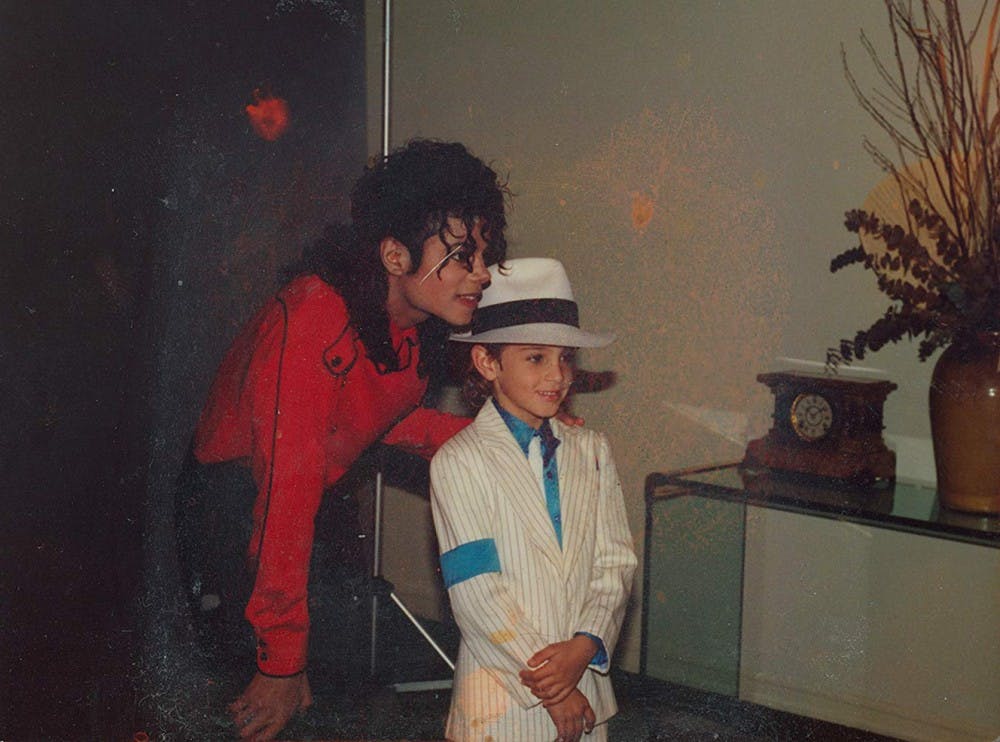HBO’s documentary, "Leaving Neverland," has shocked Michael Jackson fans and followers with a firsthand account from two men who claim the star sexually abused them as children. Their stories feel intense and intimate — stories that seem impossible to be carried out by the "King of Pop," an idol and icon for so many people around the world.
Similar stories from celebrities like singer R. Kelly and film producer Harvey Weinstein have left fans wondering how to separate art from their known abusive artist. Accusations and convictions of misconduct have spread like wildfire through the music and film industry. It’s starting to be discouraging for some fans. Now, Jackson is only the most recent artist to raise the question of whether or not consuming art by controversial artists is morally acceptable. The short answer? No.
I have been grappling with this idea for a while now, and I understand that there are a lot of people who will disagree with me on this one. I mean, wasn’t Picasso, one of the most well-known artists of all time, abusive towards many women in his life? And we still display and praise him regularly, right? This issue is as complex as it comes, but I believe that by refusing to consume the art created by artists that we know are hateful, abusive and criminal, we are maintaining the integrity of the arts, advancing the creative industry and holding abusers accountable.
After watching "Leaving Neverland," I was devastated for a few reasons. First, my heart ached for the victims that came forward about their long-term abuse by the singer and for all of the victims of sexual abuse around the world that have not been able to share their story. Secondly, it became clear to me that I could never listen to Michael Jackson’s music ever again. There was no possible way that I could listen to him and feel that I was doing any justice towards his victims. It seems daunting to stop listening to someone’s music, especially someone who has become so ingrained into the culture of our country. It may be difficult, but it is absolutely necessary.
Separating the art from the artist is an irresponsible and lazy answer to the moral question we are facing with issues of problematic artists. How do you ‘cancel’ a figure with such magnitude and influence? In my mind, it’s simple — we accept and appreciate their cultural impact without continuing to support and consume their art. It is okay if Jackson was formative in your appreciation for dance or music, but with the emergence of new information, continuing to consume his music is an action of direct support of an abuser.
And I’m not talking about running out of a store if "Thriller" comes on or to punish yourself for suddenly finding yourself singing "Ignition" to yourself when getting ready for a night out. I’m talking about the conscious and deliberate consumption of movies, music and visual art that we know are created by artists with indecent and immoral histories.
If we allow ourselves to accept art from these artists, we find ourselves on a very slippery slope. Do we allow society to support politicians like Anthony Weiner? Do we allow CEOs and businessmen to continue to practice after proof of misconduct and abuse? Just because art is typically accepted for personal enjoyment and pleasure, it doesn’t negate the fact that it was made by someone, and that creator is responsible for the moral implications of their actions outside of their art. If we do, what kind of message does that send to society, and perhaps more importantly, the victims?
If we want to continue to create, consume and experience outstanding art, we must also hold the creator responsible for their actions. Out of respect for the victims of hate and abuse, it’s the most human thing to do. Even the most famous of artists are still humans, who need to be held to the moral standards that the rest of us are.
We have the opportunity to use these people as an example of what we as consumers will not accept from the artists we admire. We do not tolerate abuse or harassment, and we will refuse to accept art from people who choose to behave otherwise. Art is essentially a manifestation of the artists. Artists have influence, artists have a platform and we should expect that with their great power, comes great responsibility.
So start somewhere, perhaps with deleting abusive artists from from your playlists. Suggest a different movie when your friends want to watch one that stars or was directed by someone with a malicious past. Your consumption of everything is a personal choice, and I’m acknowledging the power that art has in people’s everyday lives. It consumes us, it inspires us and adds dimensions to our culture that are invaluable. We need art. But just as we take pride in consuming goods and services responsibly, we should strive to do the same with film, music and art.
For the arts to continue to be taken seriously and appreciated widely, we must hold artists to the standards that we hold others to. We owe it to the arts, and we owe it to the victims.

